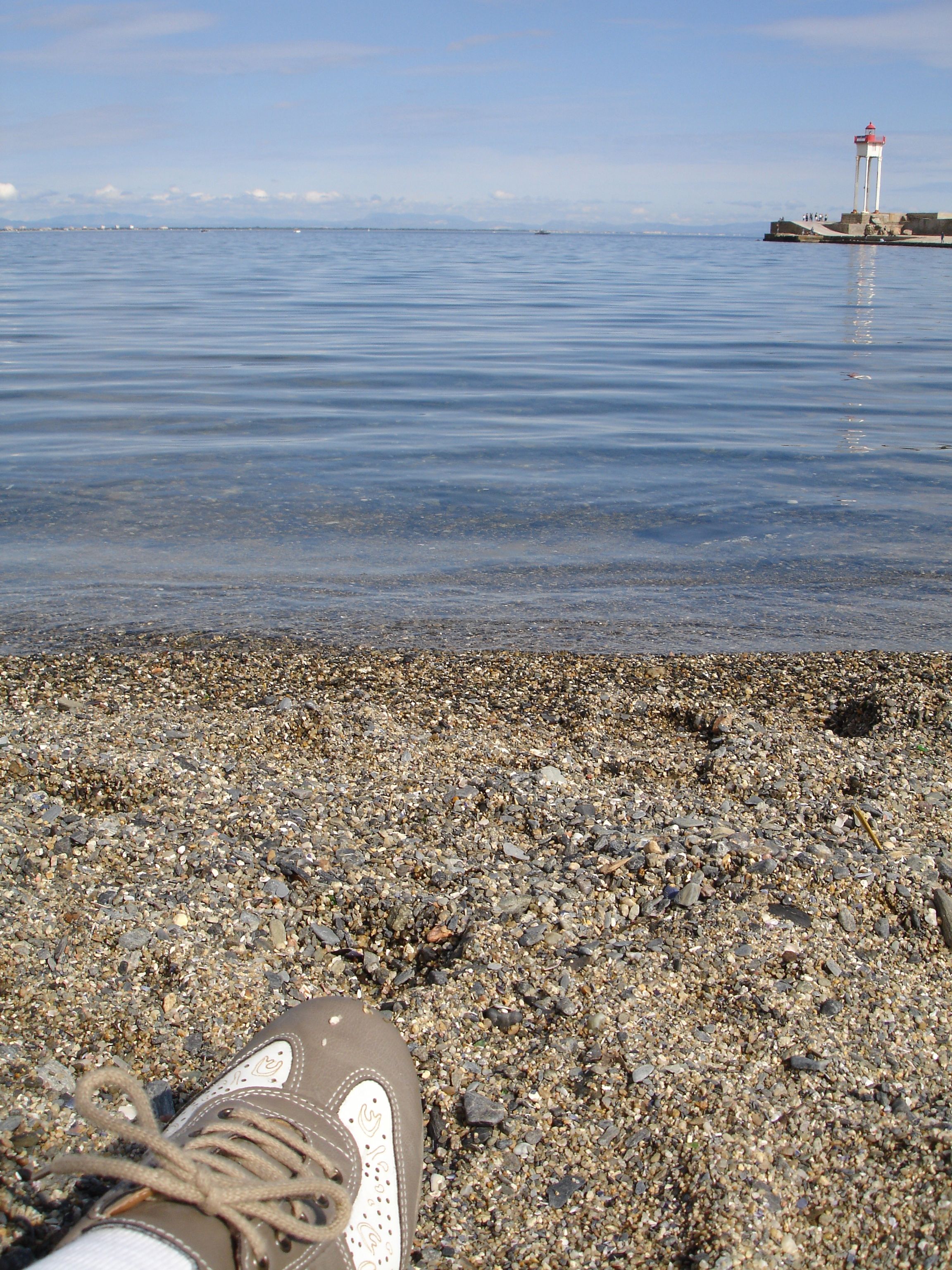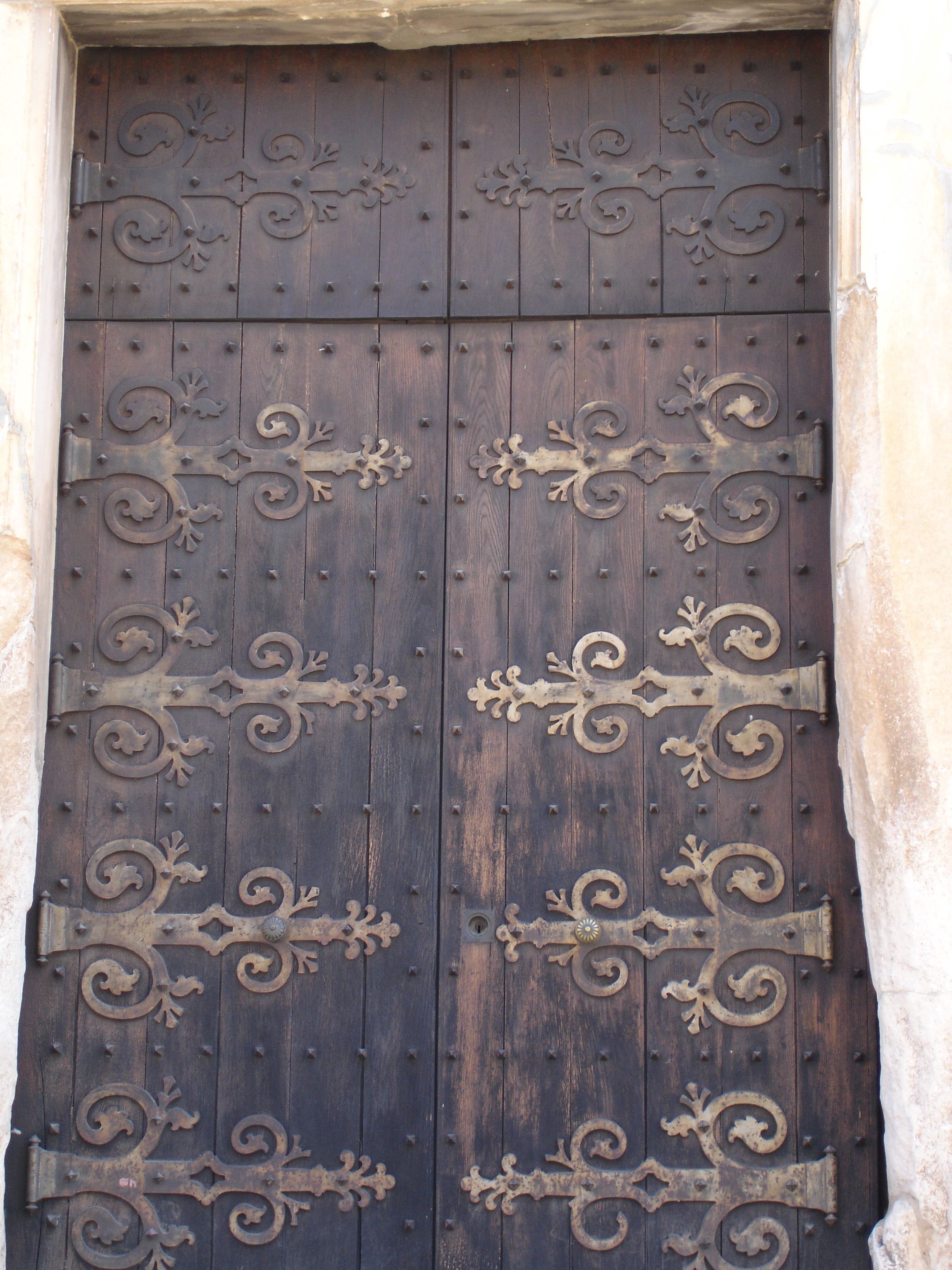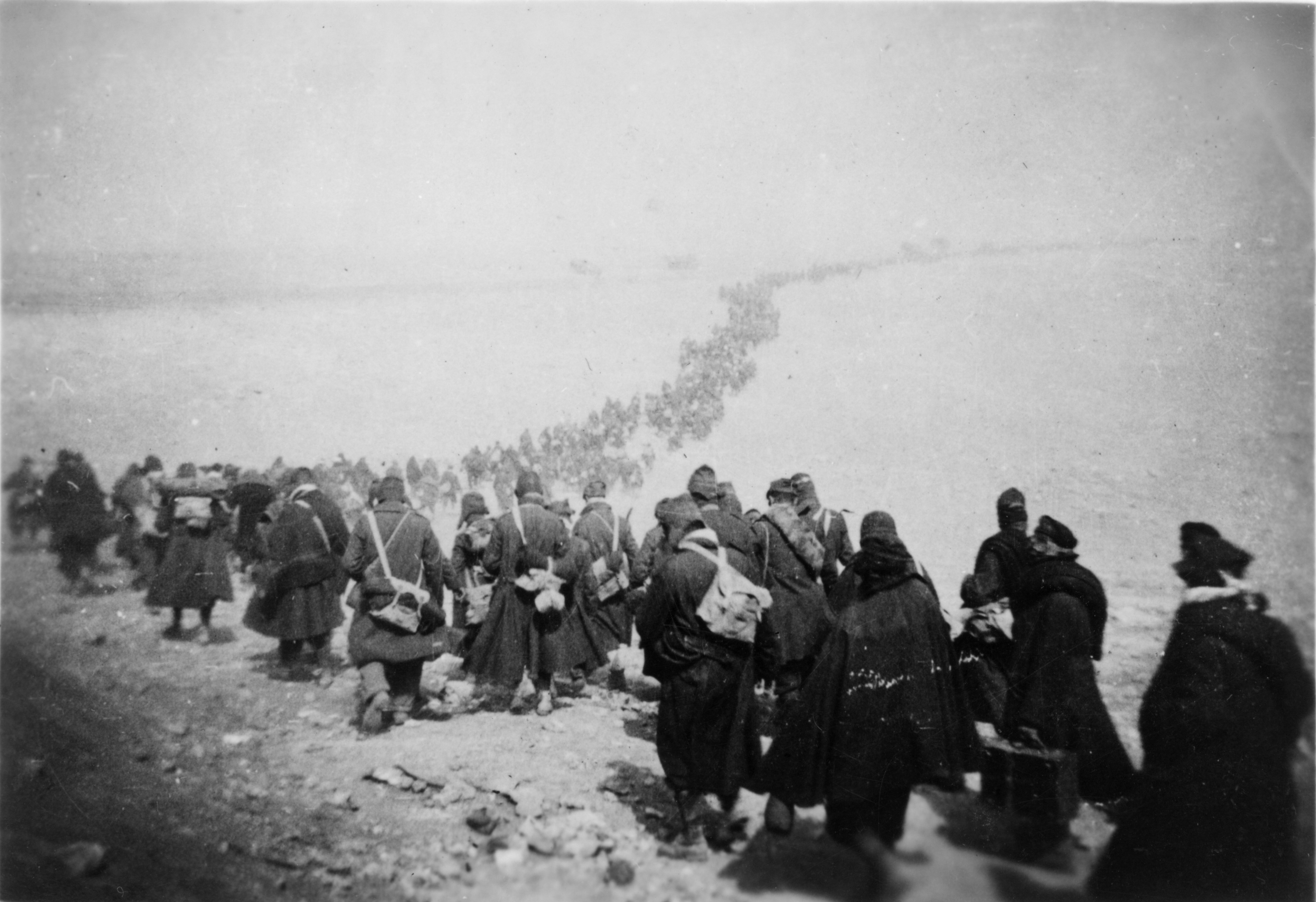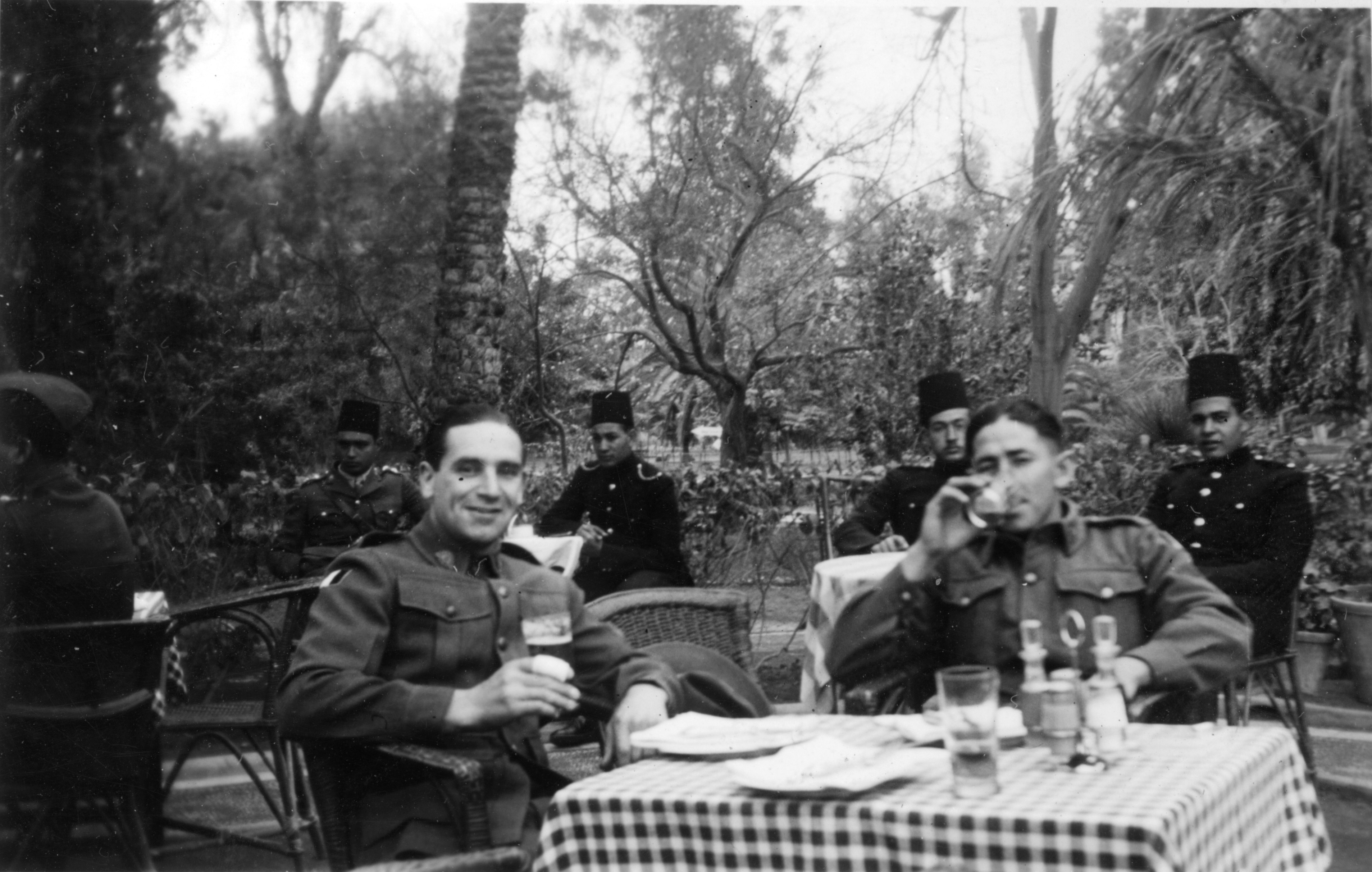Ailsa had trouble finding a free spot to park her towel on a Seattle beach this week since everyone had gone there to catch some rays. Sometimes on the beaches of south-east New South Wales we, too, have to look carefully for a nice piece of sand to plop onto without flattening the pointillist art of tiny crabs, the fine wet sand balls surrounding their homes.

This past week I found a couple of beaches here in France that were empty of people and crabs, despite lovely warm weather. I’d like to see the crabs that could roll this gravel into balls:

I was disappointed that I had to keep my shoes on, something I never do back home; it wasn’t only the gravel that bothered me (which might in fact be good for smoothing the feet), but the litter also put me off. I’ve been told the authorities clean the beaches every day in summer, but it is yet spring… On the other hand, it was something special to sit looking across the top of the flat Mediterranean Sea instead of down over the huge rolling waves of the Pacific Ocean. I’ve often thought of those waves as an analogy for life, comforted by their continual rolling and crashing that no human disaster can prevent, but if I’d grown up here beside this waveless body of water, I would’ve looked at life differently.
France is beautiful, almost everywhere, but her beaches have not stolen my heart; it still belongs to the long, white, squeaky sand beaches, often deserted (except for crabs), around the Australian coastline.










